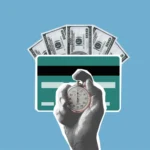If you’ve fallen into the bad habit of reckless spending, you can rectify your actions. This is possible by incorporating tiny habits into your daily routine and waiting for a compounded effect to occur. You may have struggled with long-term consistency, which is the number one roadblock to developing tiny habits that stick.
Let’s explore the best habits to help you stick to a budget.
Think About Your Budget in the Morning
Thinking about how much money you are allowed to spend each day will prevent you from overthinking. Five minutes of this daily can help you stick to a long-term budget. You can even spend five minutes writing down your expenses for the day. If you waste money unnecessarily on eating out, you can reduce this if you abide by your set budget.
You may remind yourself by adding widgets to your phone’s home screen. Most of your essential expenses will be on groceries, petrol, and eating out. When your budget is in front of you, you will likely stick to it long-term.
Whatever your budget tracking system is, it helps to think about it every day. This keeps it fresh in your mind, and you avoid putting yourself in situations where you could overspend. Once you’ve got the hang of this habit, you can trust yourself not to overspend. Some time may be needed for this mental rewiring process, but results will come.
Track Your Spending
This habit is really simple to develop. All you need to do is go to the Notes on your phone and manually add every single one of your expenses. This can help you stay accountable and within your budget, minimizing any reckless spending. When you do this for long enough, you will naturally develop a knack for budgeting.
Many people do not know how much they are spending. They don’t check their bank accounts frequently enough and may be surprised at their monthly balances. If you know how much you’re spending each day, you will learn to balance your days. For example, if you’ve overspent three days in a row, you can minimize your expenses for the other four days of the week.
Tracking your spending helps you compensate and stick to your budget.
Update Your Budget
No one picks the right budget the first time. Chances are you will have to keep updating your budget as your needs change. If you wish to stick to your budget long-term, you must keep making changes according to your needs.
You might have an unexpected expense come up or have to pay extra in an emergency. Whatever the reason, you should not feel bad about reprioritizing your budget.
Final Verdict
Sticking to these tiny habits can help you stick to a budget long-term. You will see the results you want in time. The most important part of this process is to give yourself time to rewire your brain and replace your overspending habits with more optimal ones.





